- Home
- Cooper-Posey, Tracy
Vivian's Return Page 2
Vivian's Return Read online
Page 2
Vivien climbed out of the car and looked out to sea. It looked beautiful. Too beautiful to ignore. It was too nice a day to be locked up indoors waiting for someone who she knew might be hours, or even days, away from returning.
The water beckoned.
Vivien hefted her heavy briefcase back onto the seat, slipped off her shoes and turned toward the harbor and the place where the breakwater thrust out into the sea. The breakwater was secondary man-made protection for the harbor waters against open sea swells that swept past the Point. Vivien walked down to the end of the concrete walk that covered half the length of the breakwater, then carefully picked her way over the raw boulders toward the end of the breakwater. There were a few people out fishing already, although the fish wouldn’t really begin to run until closer to sunset. Vivien nodded at them as she passed. The noncommittal friendliness of a country town was returning to her quickly and Geraldton, despite its size, was still a big country town at heart.
At the very end of the breakwater, where the water eddied and swirled around the fangs of wet rocks as the two bodies of water met, Vivien found a flat rock and sat and looked out to sea. Shading her eyes against the westerly sun, she watched the swell pick up over the covered reefs and roll past the breakwater. Such an innocent-looking stretch of water, yet the reefs—named appropriately enough “Hell’s Gates”—made the approach to Geraldton’s harbor a particularly hazardous one. Many boats and many passengers had been lost there, including Vivien’s own parents, eleven years ago.
The distinctive sound of an approaching helicopter caught her attention twenty minutes later and Vivien lifted her head to listen properly, trying to judge from which direction the helicopter was coming. It appeared from the north, moving quickly. It was skimming over the water, heading for home. It passed directly over Vivien where she sat at the end of the breakwater and with minimum hovering it settled down precisely on the center of the pad.
Even if she hadn’t known Paul was flying the machine, she would have guessed from the way he handled it. He was a natural. He had always instinctively understood the laws and dynamics of flying. Book learning, the formal side of his flying qualifications, had merely been a process of giving names to those things he had intrinsically understood all along.
Vivien sighed. Flying was his first love.
The figure that climbed out of the helicopter looked anything but happy, however. Even from her distant vantage point, Vivien could see anger radiating from him in every stiff, elongated line of his body, especially as he stalked across the concrete to the office and disappeared inside.
Who was he angry at? Surely not her, not after nearly two hours had passed. Paul had always had a temper but like her own it burned short and hot. He had never been one for brooding.
Vivien looked out to sea again. It was tempting to just stay here, with the sea breeze ruffling the ends of her ponytail and let the rest of the afternoon slide by untroubled. She had to return to the office, though. She had business to transact before she could consider returning home.
Unfortunately, to complete that business she would have to get through the initial confrontation with Paul. There was no way she could avoid it and besides, the showdown was long overdue—seven years overdue.
Movement at the front door of the office caught Vivien’s eye. It was Paul. He crossed the car park, pausing for a moment to study her car. Then he looked out across the water toward her and began walking over to the beginning of the breakwater.
So he was coming to her.
Vivien remained seated. It would take him a couple of minutes to reach her and she was glad of the advance notice. She could use the time to steel herself for the conversation ahead.
Paul clambered over the rocks with unconscious agility. He moved quickly, occasionally throwing out a hand to boost himself or for balance. The breeze billowed the snowy white material of his shirt. He had discarded his jacket and tie and rolled up his sleeves. He kept his dark head down, watching his footing. The sun made the blue highlights in his hair shine.
Thank goodness I don’t love him anymore, Vivien thought again. It is going to make this so much easier. She was glad it was so. It made this trip back to Geraldton a means of trimming back the ends of business she had left dangling, unfinished, when she had fled town as a despairing twenty-three year old.
When he reached her side, Paul was breathing lightly and easily. The exercise had barely lifted his pulse rate. “I saw you when I flew over,” he said. He looked around. “This is as good a spot as any to talk.”
“It’s not as if we haven’t talked here before,” she added, unable to stop a small smile forming. On hot summer nights, after Lawrence had finally loosened his authority as her big brother and legal guardian and allowed her to go out with Paul, Paul had often brought her down here. They would talk way into the night.
Paul didn’t respond. He was simply watching her with his black eyes, his face grave.
Vivien leapt into the silence. “You seemed pretty angry when you landed. What happened up there? Did you find the catamaran?”
Paul’s brows rushed together at the reminder and his features tightened and shadowed. He swore. “I hate October,” he said. “Every year during the Festival I find myself rescuing tourists who are too stupid or too lazy or just too damned arrogant to take simple safety precautions. Two weeks out of fifty-two they get to play around with boats, if they’re lucky, and they think they know it all.”
“What happened?” Vivien repeated, surprised and somewhat amused at his wrath. If he didn’t spend a lot of time hauling tourists out of trouble, he would be bored senseless.
“It was one of the catamarans Bob has for hire off Bluff Point—they were miles north and out of sight of land. They’re only supposed to take three, maximum but there were five of them on board...a whole family, for god’s sake and not a life jacket in sight.” He pushed his hand through his hair, sweeping it back off his brow. “Those kids were the same size as my sister’s and Estelle’s oldest is only six.” His expression was both angry and despairing.
Vivien shook her head, full of wonder. “Listen to you,” she said. “Since when did you get so high and mighty? You’ve never worn a life jacket in your life.”
“But I can swim. Those little kids can’t and they can’t get themselves out of trouble, either.” His expression grew bleaker.
“And you can?” Vivien asked softly. “That’s incredibly arrogant and pretty dangerous. You’re not invincible, you know.”
He shook his head, all emotions fading away from his face. “I know that. But that’s between me and whatever my fate is. I don’t put other people at risk. I never have.”
“No, you don’t,” Vivien agreed. She knew that lesson too well. “Other people” had included herself, once. She had been first and foremost the one that he would allow no risk to come near.
Paul put his hands in his pockets and lifted his foot to rest his shoe against the blunt triangular point of a rock, pulling the material of his trousers tight against his strong muscled thigh. Vivien suspected that there was a long thin scar running up his flank, following the line of the muscle—the last time she had seen his bare leg, it had sported a new, red-raw wound. Annoyed with herself for letting her mind wander, she lifted her gaze up to his face.
It wore the same neutral expression he had held when she had first seen him in the office, earlier. “So why are you here, Vivien?”
Vivien clasped her hands together on her lap. Game time. “You’ve applied for the Coastwatch tender,” she said. Australia had some of the remotest and most inaccessible coastlines in the world and the government licensed and subsidized independent contractors to carry out regular air surveillance of specified portions of coast. The northwest was a particularly favorite landing ground for Asian refugees.
“How do you know about the tender?” he asked.
She smiled a little. “I’m the state Safety Assessor,” she said. “I’m here to assess your proposal and
your company’s operations.”
“You?” The word was flat, full of disbelief...and anger.
Vivien’s smile turned rueful. “Ironic, isn’t it?”
Paul looked away, turning his whole body through ninety degrees to stare out over the flat water of the harbor. He was controlling his initial reaction, she realized. When had he learned how to do that? The Paul of old would have let rip—told her what was on his mind with the colorful metaphors that had always made her laugh and eventually he would have laughed along with her.
Now, he merely took a breath, squared his shoulders and turned back to her. “I don’t know about ironic,” he said evenly. “But it’s logical, considering the reasons why you left...Geraldton.”
He was going to say “left me”, she thought. Why hadn’t he? Didn’t he feel that he had once had that much claim on her? Vivien frowned to herself. There were changes in him that baffled her. His caution, his control, the deliberate way he chose his words and the neutral expression on his face. It was only for her, she realized. His feelings had been more than apparent when he had been cursing the tourists.
He was still considering her carefully. “I’m surprised they sent you,” he said. “Did you tell them that you’re not a stranger here? Are you sure you can be a neutral observer?”
“I haven’t told them yet,” she answered calmly. “I only got the request for the report a week ago. Besides, I don’t intend to be biased. Don’t worry, I won’t cut you any slack.”
Paul nodded. “That’s what I mean. Considering the reasons you left in the first place, I wonder if you can do your job properly now. I imagine you would be inclined to judge harshly, just through sheer bloody-mindedness.”
Vivien nodded. “Yes, there was a chance that might be a problem,” she said. “But now I know it won’t be. I don’t hold any ill feelings, Paul. Not now and I probably haven’t for some time. I was young and it was such a long time ago.”
“Seven years,” he said.
“Yes.”
He looked down at the rocks for a minute, then up again and smiled a little. “So, you’re a safety assessor. That’s where you went to after leaving town.”
Vivien shook her head. “I went north, actually. I went stock herding on the stations.”
“On horseback?” he asked, puzzled.
“By helicopter,” she said flatly, annoyed. Had he forgotten she had her own license? How did he think she had qualified for the Safety Assessor’s position?
Paul blinked, astonished. “By helicopter,” he repeated. “Dangerous occupation,” he added.
Vivien nodded. It had been a dangerous, wildly exhilarating and cathartic two years. The success of the catharsis was evident right now—how else could she be sitting here so calmly when Paul stood bare inches away from her?
“It was lucrative too,” she told him. “I got out after two years with enough money to finance a loan to buy my own Gazelle.”
Paul glanced over his shoulder at the helicopter sitting on the pad behind the office. “What did you do then?” he asked.
Vivien suppressed a broad grin. “Radio traffic reporting in Perth. Did you ever hear ‘Amelia Airheard’ on the FM stations?”
“You?”
Vivien nodded. “It was fun. I used to take competition winners up for joyrides too and I got to go home to my own bed every night, with a thick pay packet each month.”
Paul shook his head, as if astonished. “Why did you quit if it was so much fun?”
“Ratings. They wanted a new image and I wanted to broaden my horizons. I saw this job advertised in the West Australian and applied almost on a whim. I think I got the interview because of the novelty of having such a young woman apply.”
“But you had the ability too, or you wouldn’t have got the job.”
“I had some pretty firm opinions about safety. I think I made them sit up and take notice.” She shrugged. “That was about eighteen months ago.” The date reminded her of something. “I was sorry to hear about your father’s death,” she said. “And about Carlos. I wanted to come to the funeral but I was in Canberra, reporting to a parliamentary committee.”
Paul sighed. “I saw the card you sent to my mother.”
“How is she?”
He frowned. “Managing,” he said. “She’s living with Carlos and Kathleen now. She helps Kathleen with the kids when Carlos can’t keep up.”
Carlos was Paul’s older brother. He had lost his left leg below the knee in the same boating accident that had killed Paul’s father. Carlos had been his father’s deckhand on the crayfishing boat that had been the family business for nearly thirty years.
Paul cleared his throat awkwardly. “How’s Lawrence?” he asked, patently changing subjects. Obviously Paul’s family was a forbidden subject.
Vivien tried to lighten the solemn mood that had fallen over them. “Lawrence is living in Sydney now, running a little old-fashioned corner store. One of those stores with the house added on behind. His family loves it. He’s on hand all hours of the day. Poor Lawrence,” she said with mock pity. “He had to grow up fast, looking out for me, didn’t he?”
Paul smiled, a full, joyous grin that showed his even, white teeth and made his eyes sparkle. “You were certainly a handful,” he said.
“It was all your fault, of course,” Vivien added dryly.
Paul laughed. “So he kept telling me.”
Vivien smiled, glad to see she had managed to lift his mood. It had not been one of her intentions to make Paul feel any pain or hurt over her return. On the contrary.
Some of her thoughts must have shown on her face, for Paul raised one brow and said quietly, “Why are you really here, Vivien?”
Vivien swallowed. “What makes you think there’s another reason?”
Paul smiled thinly. “Because I know you. You would have told Canberra or whoever your bosses are to go to hell rather than take this assignment, if you didn’t want to come. So why did you want to come back? What made you return?”
“It was time,” she said evenly. “As I’ve said, I don’t have any ill feelings toward you. I’ve got over you. I thought you deserved a chance to put any ghosts to rest, yourself. Not that I flatter myself you’ve been pining away for loss of love over the last seven years.”
Paul’s brow rose again but he remained silent.
“Jenny seems like a very nice girl,” Vivien added. “I’m here to explain myself, I guess—if you’re still interested in an explanation. Or to answer any questions you might still want answered. I’m not denying I left abruptly. It wasn’t a clean cut.”
“No, it wasn’t,” he replied.
“Well, now I’m here to fix that, if you want.” She straightened her shoulders and lifted her chin. “So here I am. Fire away. Do your worst.”
For a long moment he just looked at her, the same neutral expression she had been confronted with whenever she was the focus of attention. “I don’t love you anymore,” he said evenly. “I don’t want to score points off you anymore.”
Vivien pursed her lips. “Well, aren’t we the civilized pair, then?”
Paul smiled and pointed his finger at her. “You will never be civilized. You may have a veneer of polish but you’re still kicking your shoes off whenever you can.”
Vivien looked down at her bare pink feet where they were pushed up against a large flat rock, propping her upright. “All the better to climb rocks and get wet with,” she said.
“I rest my case.” Paul shoved his hands into his pockets. “How long are you in town for?”
“An assessment usually takes a week, maybe ten days. I want to take some time off to catch up with old friends too. Say, two weeks.”
“Then, if I think up any questions I can use to score points off you, I can find you?”
“You won’t have to come looking,” she replied. “For most of that time I’m going to be standing right next to you, taking notes.”
“I’m terrified,” Paul replied, his face dead
pan. “Come back to the office and I’ll get you a coffee. This breeze is beginning to cool.”
Vivien nodded and stood up. Slowly, they picked their way back along the rocks. Paul remained silent and Vivien felt no need to rush in and fill the silence this time. All in all, she was content with the way things had turned out. It seemed they both had managed to get on with their lives and turn them into successes, despite the rocky start and the hiccups along the way. She was satisfied that she had caused no lingering hurt or scarring in Paul and now she was free to get on with her job and her life. With Paul being so reasonable, another two weeks in Geraldton wouldn’t be a burden.
All the advice she had heard and read had told her not to go back over old ground—that it would only cause unnecessary hurt and pain. She had deliberately flouted that advice, driven by the need to know that whatever damage she may have delivered seven years ago had not been permanent.
Her decision had been a good one. Today she had managed to put to rest any lingering ghosts from the past and she could close this chapter of her life, content.
Most people were not that lucky. Most people who dared to return found that the pain and wounded pride, the detritus from unhappy times in their pasts hung around their necks like anchors, dragging them down into the maelstrom, to relive the hurt over and over again. There, they would look for blame, for responsibility. Parcel out guilt. Cry over lost love.
Thank god that was not going to happen to her.
Chapter Two
“Hey, Vivien! Vivien Galloway!”
Vivien halted at the edge of the hardstand area and looked over her shoulder. The man who’d hailed her was jogging down the long side of the wheat silo toward her. Vivien frowned. She had a feeling she should remember him but the man seemed unfamiliar.
There was a second man walking on the other side of the harbor access road that ran the length of the silo, carrying an overnight bag but he was looking around at everything but her, minding his own business.

 Heart Strike
Heart Strike Degree of Solitude
Degree of Solitude Kiss Across Blades
Kiss Across Blades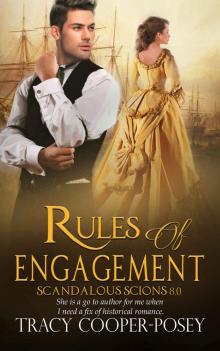 Rules of Engagement
Rules of Engagement Marriage of Lies
Marriage of Lies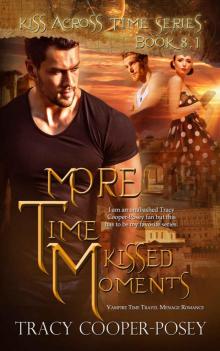 More Time Kissed Moments
More Time Kissed Moments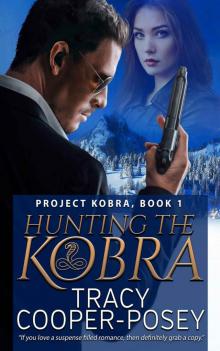 Hunting The Kobra
Hunting The Kobra Black Heart
Black Heart Eva's Last Dance
Eva's Last Dance Solstice Surrender
Solstice Surrender Inconvenient Lover
Inconvenient Lover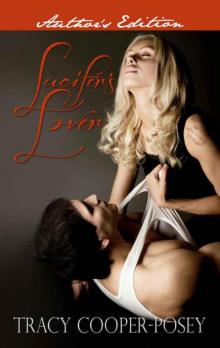 Lucifer's Lover
Lucifer's Lover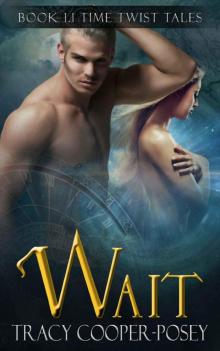 Wait (Beloved Bloody Time)
Wait (Beloved Bloody Time) Diana by the Moon
Diana by the Moon Delly's Last Night (Go Get 'Em Women)
Delly's Last Night (Go Get 'Em Women)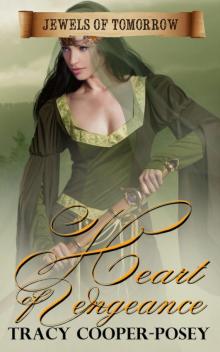 Heart of Vengeance
Heart of Vengeance Law of Attraction
Law of Attraction Southampton Swindle
Southampton Swindle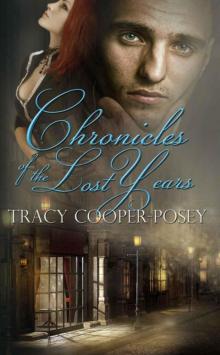 Chronicles of the Lost Years (The Sherlock Holmes Series)
Chronicles of the Lost Years (The Sherlock Holmes Series) V-Day
V-Day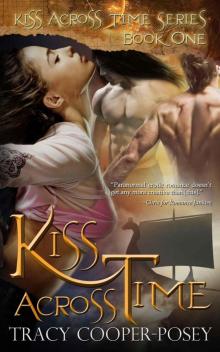 Kiss Across Time (Kiss Across Time Series)
Kiss Across Time (Kiss Across Time Series)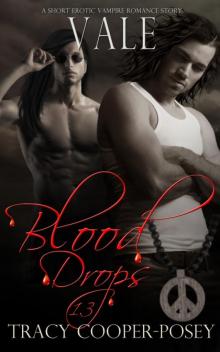 Vale: A Short Erotic Vampire Romance Story
Vale: A Short Erotic Vampire Romance Story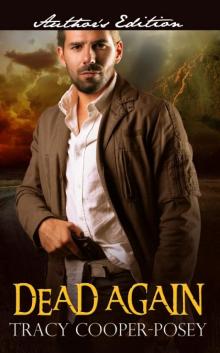 Dead Again: A Romantic Thriller
Dead Again: A Romantic Thriller Dangerous Beauty
Dangerous Beauty Blood Knot
Blood Knot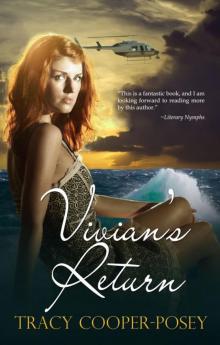 Vivian's Return
Vivian's Return Veil of Honor
Veil of Honor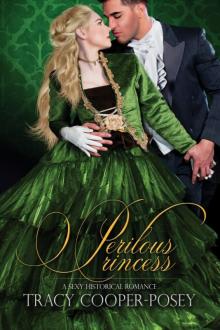 Perilous Princess: A Sexy Historical Romance
Perilous Princess: A Sexy Historical Romance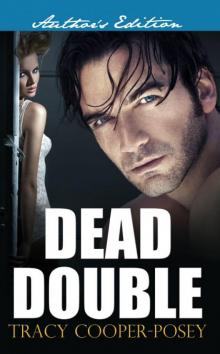 Dead Double
Dead Double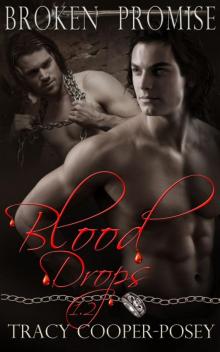 Broken Promise
Broken Promise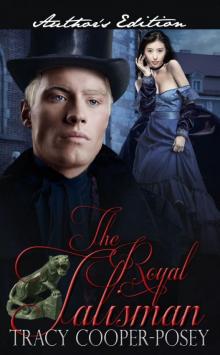 Royal Talisman
Royal Talisman